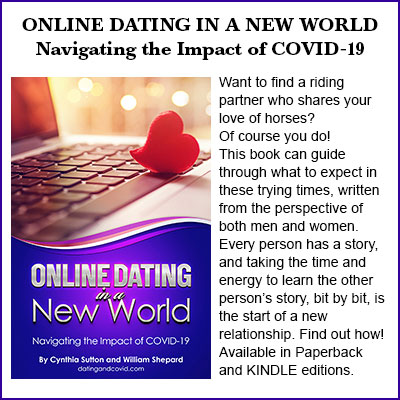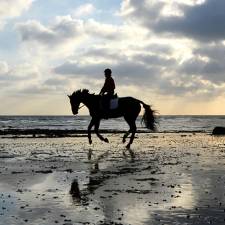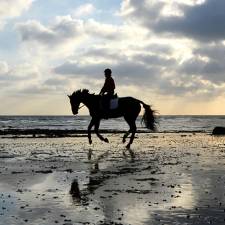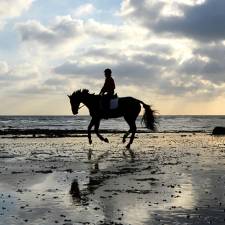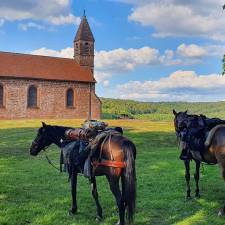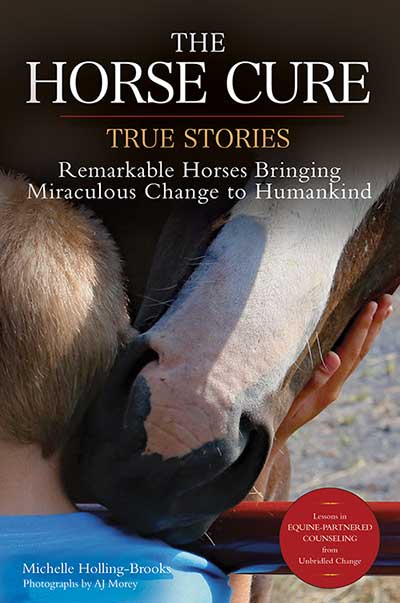
by Michelle Holling-Brooks
“Nick” was a veteran. Tall, muscular, and broad-shouldered, his personality and attitude was over-the-top sarcastic. When we first met him, the energy that traveled in front of him was aggressive and explosive. It was as if he had a fortress of walls, traps, and land mines built around his emotional self, and nobody was going to get close to him. If Nick had come with a sign around his neck, it would have said, “Enter at your own risk, if you dare! I challenge you, bring it!”
Nick called and asked to set up a farm tour. He had heard about our program from a friend of a friend. His wife threatened to leave him if he didn’t try to get help for his rage and suicidal ideations. He came into our office on a mission. I don’t know if it was conscious or not, but the message seemed clear to us: “I’m here to try to shock you with my past, overwhelm you with my current issues, and get you to leave me alone and let me walk back out without signing up for your program.”
In our office, Nick pulled out a chair, sat down, placed both hands interlocked on the table, and said in a gruff voice, “So what do you ladies think you can do to help me?” Before either Cami or I could respond, he leaned back, reached into his pocket, and pulled out a bullet. He placed the bullet on the table. “I’m going to use this to kill myself. Can you ladies give me a reason not to?”
Cami and I looked at each other. My thoughts raced through what our legal responsibilities were, then a sense of calm came over me, and I said, “I can’t give you an answer that you will listen to. However, my opinion doesn’t matter—the horses have the answer to that question. Let’s go ask them.”
I stood up and walked to the door. Cami smiled—she had been thinking the same thing. Talking to Nick at that moment was a waste of time and would be counterproductive. He was looking for a fight. We didn’t want to give him one. Getting him up and doing something with the horses was going to be our best option and the best chance for him to choose to let us support him in his healing quest.
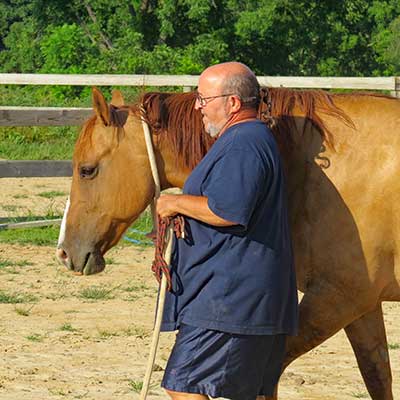
Nick looked confused, but he stood up and followed me. I didn’t begin my normal intake talk about the barn rules and all of the other general information I usually share on a client’s first day. Rules would just give this man something to push back against. We didn’t have his trust and respect yet, so that approach would be walking into his minefield.
What does reactive attachment disorder and early trauma turn into when you are an adult? For Nick, those things equaled a deep sense that the world was not safe. He tended to attach quickly to the people around him. After attaching too quickly, relationships would hit a roadblock, and because the foundation of trust and respect was not there, they would implode. This pattern left Nick feeling hurt and disappointed by those he had trusted and given his loyalty to. Nick had a huge desire for love and family and a fierce loyalty to anyone he became attached to. He had an undercurrent of anger at the world for unfairly denying him loyal relationships in return for his dedication.
Nick’s history included early childhood trauma and neglect, leading to foster care and abuse. He retreated to the army and was sent overseas where his already overactive toxic stress responses created the perfect storm in intense combat situations. When he came home, he was labeled with combat PTS and other mental health personality diagnoses. Explosive rage appeared with the littlest slight. His anger made keeping a job difficult. Because he felt he wasn’t meeting the role requirements of a good husband and provider, his marriage struggled. His unpredictable behavior and his threats to hurt himself or someone else finally led to a last effort to find balance.
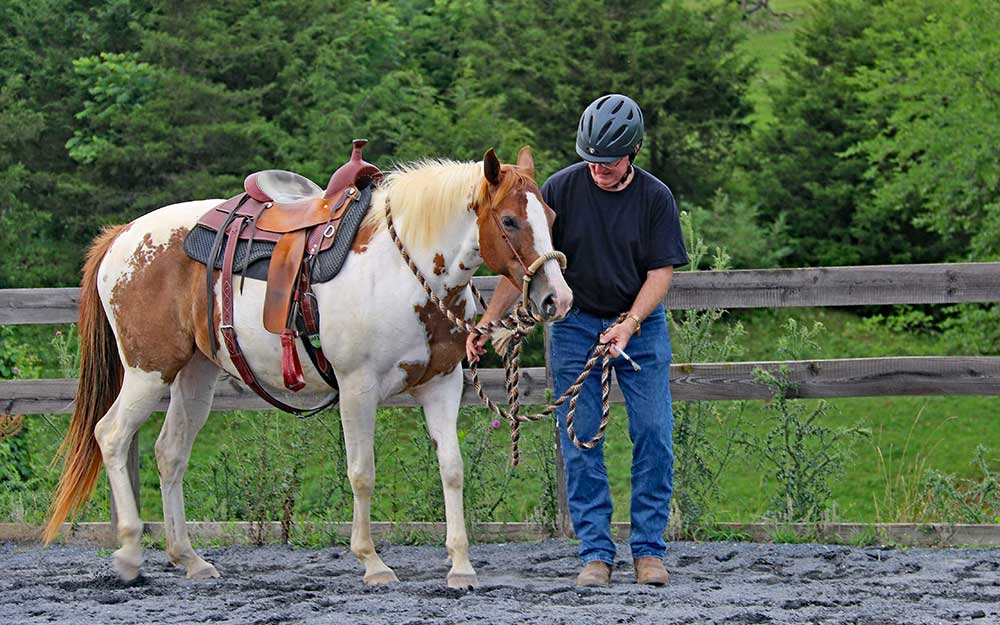
Nick shared this with us as we walked around, meeting each of the horses. We didn’t ask for the information—he offered his story. It felt like he was placing a challenge on the table: Let’s see what you guys can do with this.
Over the next two years, Nick built relationships with every horse in our herd. Some horses stood out more in his treatment, and some he built strong bonds with—it took the whole herd. If you ask Nick, he will tell you, “The horses literally saved my life. I didn’t want to live anymore. I had lost my purpose. I had lost faith in others, God, and myself. The horses gave me a chance to reconnect to all of those things. They helped me find my center again.”
.jpg)
This excerpt from The Horse Cure by Michelle Holling-Brooks is reprinted with permission from Trafalgar Square Books (www.horseandriderbooks.com). Photographs by AJ Morey.
Find this book and other interesting equestrian stories and books in our section on Books and our section on Therapeutic Riding.






